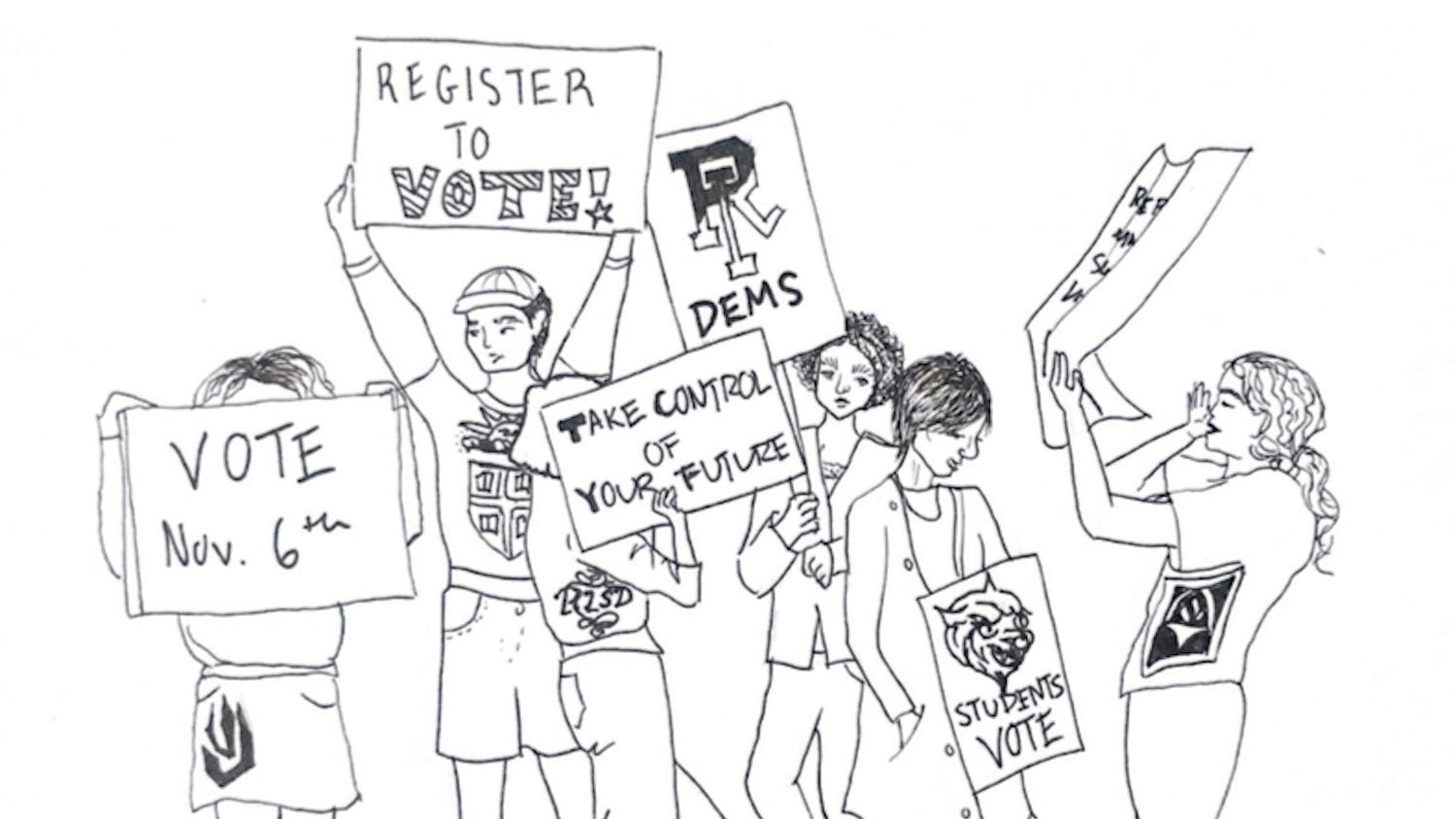Tuesday's presidential primaries marked the first time in Rhode Island history that voters were required to show identification to cast a standard ballot.
The identification requirement has drawn criticism from organizations that believe the policy might disproportionately disenfranchise groups of people - particularly minorities, the poor and the disabled - who are less likely to have the proper identification, according to some reports.
"By enacting a voter ID law, Rhode Island has taken a giant step backward in the long and continuing struggle for voting equality," wrote Steven Brown, Rhode Island American Civil Liberties Union executive director, in a press release at the time of the legislation's passage last year.
Defenders of the bill highlight the opportunity for people to cast a provisional ballot even if they do not have proper identification, as proof the new law does not disenfranchise registered voters. A provisional ballot - unlike a normal ballot - must be signed. The local Board of Canvassers then compares the signature on the ballot to the voter's original registration signature, and if the two match, the vote is counted.
In a survey of more than half of the cities and towns in the state conducted by the office of the Rhode Island Secretary of State, around 25 provisional ballots were cast - 0.1 percent of all votes. "People were well prepared with voter IDs," said Chris Barnett, communications director for the Secretary of State.
The provisional ballot is still worrisome, because the elderly or the disabled may not have the same signature they had when they registered to vote, Steven Brown said. In some cases, decades could have passed since registration, he added.
The low number of provisional ballots shows no voters have been disenfranchised as a result of the new law, Barnett said. Rhode Island is the national model for states implementing voter ID laws, he said.
The low number of voter identification problems reflects positively on the state, but because of low turnout in Tuesday's primary, the contest was essentially a "dry run," Steven Brown said. In Tuesday's primary, just over 22,500 voters, or 3 percent of the eligible population, cast a ballot in either the Democratic or Republican primaries. The voter identification laws still have not been tested on a scale large enough to understand what effect they will have, Steven Brown added.
In the 2008 presidential election, almost 475,000 people cast ballots - 19 times as many as were cast Tuesday.
There are no worries that in the general election the increased turnout will cause more difficulties with voter identification, Barnett said.
The state's aggressive public education campaign will guarantee that voters are informed of the new policy and able to vote, Barnett said. "We were in the media, we were on the radio, on all four Rhode Island network affiliated news casts, and we worked with vote canvassers ... to ensure that no one is denied the right to vote," Barnett said.
The Secretary of State also organized mobile voter identification teams that visited every city and town in the state at least once starting 10 to 11 weeks before the election. The teams visited senior centers, community centers and affordable housing developments to help those who might have more difficulty obtaining identification, Barnett said.
The state's efforts to provide proper identification to everyone were important, but not comprehensive, Steven Brown said. "It looked like virtually all the outreach efforts were taking place during the day," he said. "If someone had a nine-to-five job or two jobs, it would be very difficult for them to get an ID," he added.
Barnett challenged Steven Brown's assertion, calling it "misinformed or misplaced." He cited three occasions over the past few months when opportunities for state documentation were available past 5 p.m. On these occasions, the office's staff was available until 6, 7 and 9 p.m. The visits were also available on demand - an opportunity several institutions took advantage of, Barnett added.
For last Tuesday's primary, voters needed to present some form of government identification with their name on it, including social security cards, birth certificates, utility bills and bank statements. Photo identification is not necessary for any of the elections this year but will be phased in over the next two election cycles.




